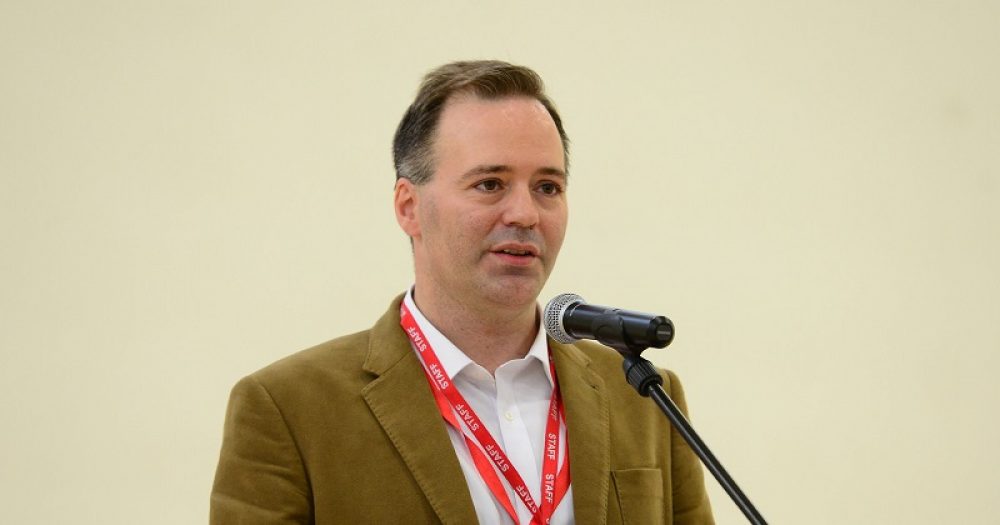Government behaviour tsar Tom Bennett will lead a £10 million project to support 500 schools across England to develop policies like detention systems and new sanctions for pupils.
At the Conservative Party conference in October, education secretary Damian Hinds pledged the £10 million in funding to help schools which manage behaviour well share their experience with others.
Details of the scheme were sparse at the time, but the DfE announced today that the money will be used to identify lead schools for the network and fund their activities in supporting others, through staff training, the creation of centralised detention systems, and new sanctions and rewards schemes for pupils, with a focus on pupil attendance and punctuality.
Bennett, a proponent of zero-tolerance behaviour policies who led the DfE’s independent review of behaviour in schools, will be the lead adviser of the programme.
Schools minister Nick Gibb said the DfE wants schools to “instil cultures of good behaviour top to bottom” and described improving pupil behaviour as a “key priority” of the government.
“With £10 million of funding, the support provided to schools will allow teachers to get on with what they do best – teaching – and empower school leaders to implement their behaviour policies correctly and robustly.”
Bennett said the scheme “may very well be one of the most significant strategies for public good we have seen in decades” adding that he is “thrilled” to lead the programme which will help schools become “safer and calmer, allowing more children and staff to flourish.”
A team of education professionals will be appointed as advisers to help Bennett develop and deliver the support programmes, including helping to select the lead behaviour schools, working with the supported schools to understand the behavioural issues they face, developing “comprehensive, bespoke action plans” and participating in behaviour conferences.
Paul Whiteman, general secretary of school leaders’ union NAHT, warned that “for many children and young people behaviour is a way of communicating that something isn’t right. It is vital that we don’t look at ‘bad’ behaviour in isolation and take too simplistic an approach in tackling it.”
He added that schools need the “capacity and resource” to understand the causes behind a child’s poor behaviour, and said “sufficient” staffing and the help of specialist services are “key”.
The programme aims to support 500 schools and is set to launch in September 2020 for an initial period of three years. It is not yet known how many lead schools will make up the network.
The DfE said that, by the end of it, teachers are “expected to report fewer incidents of disruptive behaviour and pupils should report they feel safer at school, while able to learn more effectively.”







The opaque relationship between celebrity behaviour big brother Tom Bennett Ltd, Nick Gibb, Schools Minister and funding streams like TLIF is nothing short of scandalous. It speaks volumes for this ideologically driven education policy
My concern the young people with needs undiagnosed tutors not understanding needs Children not being understood Not enough professionals Ito help When children get older won’t go for help Need different types of education My son has FASD no one understood even if the new about it It naughty boy syndrome Secondary transfer was the time hard fat a child with school problems coping
Large areas having to move around school no structure break times standing outside the heads office not understanding what he had done wrong no trips because you don’t behave
Meeting with heads cannot do that to many students in the school he cannot be treated any different but each student is different
My son excluded that was the end of education for him at 14 Home tuition did not work
Keept him off the streets school time but met wrong crowd drugs groomed hard times but thankfully turned around 18 moved out of the area now got a job As a foster carer adopted parent and chair of governors have experience of assorts of needs of children teens
These children with hidden disabilities can and are difficult but sometimes are overlooked as naughty children
This is just a pen picture of my story
This Government is going out of its way to really push the families with children that have special needs to despair.
Children with Autism can’t cope in things that most of us take for granted.
Punishing them because of there condition is totally unacceptable.
Use the £10 million to help special schools.
Quickly let’s change it for your ideology so then it will be alright. 500 schools with 10 million is only 100,000 a school. It will be interesting to see what they achieve with such a low budget.
Actually, it’s only 20,000 per school. Even worse!